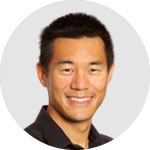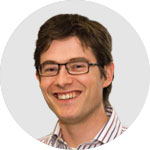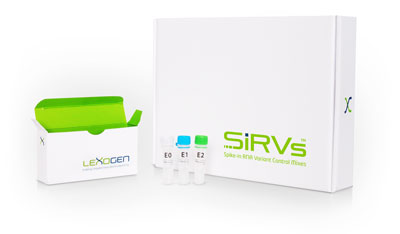LEXOGEN RESEARCH AWARD
Lexogen Research Award – “Controlling RNA-Seq Experiments Using SIRVs“
Winners
- Bertille Montibus
Institution: Wellcome Trust – Medical Research Council – Cambridge Stem Cell Institute
Recommendation program: Dr. Brian Hendrich - Mary K. Thompson
Institution: University of Oxford
Recommendation program: Ana Palanca - Nicholas Schurch
Institution: University of Dundee
About
Apply or Recommend – Simply everyone can win!
Sequencing has become one of the most powerful tools in state of the art research projects. Lexogen is dedicated to the development of innovative technologies that empower next generation sequencing (NGS). As much as we care about innovations, we also believe that it is important to give all scientists the opportunity to benefit from our technologies.
With the Lexogen Research Award we wish to provide a chance for researchers to utilize NGS technologies in their upcoming projects.
We started our first Research Award “Expression Profiling by Sequencing” last spring which was very successful and received an extremely high number of applications with interesting project proposals. Out of these, three winners were selected. This September we are very happy to launch the second Research Award and look forward to your application.
We ask you to submit a project proposal that involves NGS and Lexogen’s Spike-in RNA Variant Control Mixes (SIRVs) before November 21, 2016. The three selected winners shall be given one set of SIRVs together with one sequencing run (1 lane of Illumina HiSeq 2500 with 2×125 bp reads).
Topic
The topic of this Research Award is “Controlling RNA-Seq Experiments Using SIRVs”.
Hardly anyone would run an RNA gel without a ladder, but transcriptomes are mostly sequenced without the use of external standards. The added layer of transcript isoform complexity in eukaryotes as well as incomplete or incorrect gene annotations further challenge RNA-Seq pipelines to correctly calculate and compare gene expression values.
As a specialized transcriptomics company, Lexogen addresses this problem by providing Spike-in RNA Variant Control Mixes (SIRVs) to the RNA-Seq community.
These controls are processed together with the RNA sample to allow for an evaluation of the RNA-Seq workflow and, in particular, of transcript isoform detection and gene expression quantification. The mixes contain 69 transcript variants that map to 7 human model genes and mirror the native transcriptome complexity by comprehensively representing splicing isoforms, transcription start-site and end-site variants, overlapping transcripts and antisense transcription.
Learn more about SIRVs on its web page: https://www.lexogen.com/sirvs/
Attend the SIRVs webinar on October 19, 2016. Register here.
Prize
Three applications will be chosen as the winners, and shall be given the following prizes.
Who Can Apply
Any individual researcher or research group in academic institutions or research organizations will be eligible for the award. Please note that official organizational email address will be needed for the application.
Recommendation Program
If the current topic of the award does not fit to your research, but you know researchers whose work does fit to the topic, you can still benefit from this award. You can choose to do either one of the followings:
- Let our Scientific Liaison, Birgit Steinmetz (birgit.steinmetz@lexogen.com), know the research group. She will contact them personally to see if they wish to apply. If they do, we will count you as the recommender for that application.
or,
- Tell them to write your name in the recommender section of the application form.
If the recommended person wins the award, you will receive a special prize – pizza treat for your lab.
Selection Process
The selection of the winners shall be done by 2 referees, based on the relevance of utilizing the QuantSeq Library Prep for the project.

Dr. Michael Quail
Wellcome Trust Sanger Institute, UK
Read the biography
Dr. Quail obtained his undergraduate degree in biochemistry from the University of Hull. He spent two years at Quest International (a Unilever company) developing methods to produce natural food flavor compounds before pursuing a Ph.D. investigating the cytochrome P-450 system of Botrytis cinerea at the University of Sheffield. He then moved to the laboratory of Prof. John Guest where he undertook two successive Wellcome Trust-funded postdoctoral positions working on the regulation of the pyruvate dehydrogenase complex and the function of iron-storage proteins in E. coli. Dr. Quail moved to the Sanger Centre in 1997 as a Senior Research Assistant working on subcloning for the pathogen sequencing program. He was promoted to project leader and then Head of Sequencing Library Construction. Dr. Quail was one of the early pioneers of next-generation sequencing sample preparation automation and multiplexing, and in 2010 changed role to manage the sequencing R&D group at the Wellcome Trust Sanger Institute. He is involved in evaluation of new sequencing technologies, ancillary equipment, molecular biology kits and reagents, and develops new sequencing applications.

Dr. Gene Yeo
University of California, San Diego, USA
Read the biography

Dr. James Hadfield
Head of Genomics at CRUK Cambridge Institute, University of Cambridge, UK
Read the biography
James Hadfield (PhD) is the head of the genomics core lab at CRUK’s Cambridge Institute. He was recruited in 2006 to build a new genomics facility which today focuses on Illumina next-generation sequencing for cancer genomics. His lab has expertise in experimental design, library preparation and sequencing technologies; and is the hub of a large sequencing collaboration including 9 University Departments or Institutes, the MRC LMB and Astra Zeneca. He is a thought-leader in NGS and writes the Core-Genomics blog. He is currently seconded with Genomics England; and is on the scientific advisory board of Rubicon Genomics.
James got his degree and PhD at the University of East Anglia. He started his career with a BigC funded project to develop a diagnostic test for Her2 positive breast cancer in 1995. In 2000 he set-up one of the first microarray facilities in the UK and has focused on genomics technologies ever since. James has two kids and lives in Norfolk, which is a lot nearer the coast than Cambridge.
Blog: core-genomics.blogspot.co.uk, Twitter: @CIgenomics, LinkedIn: James Hadfield





